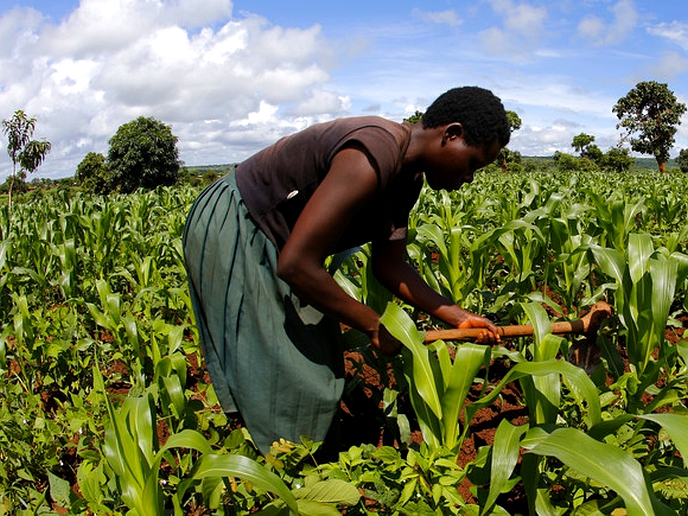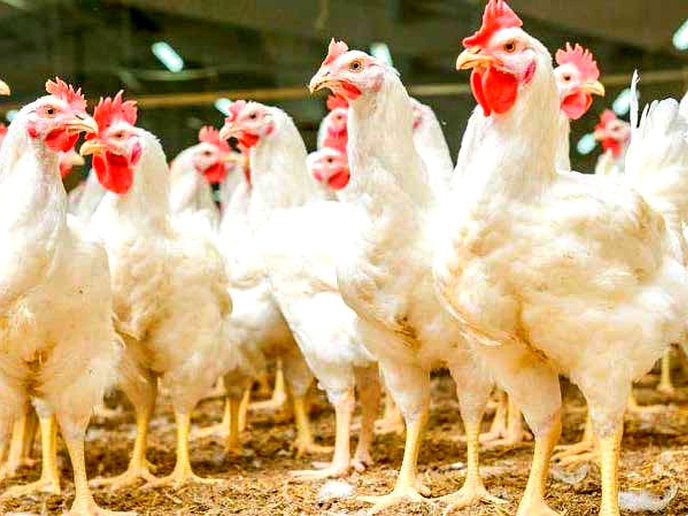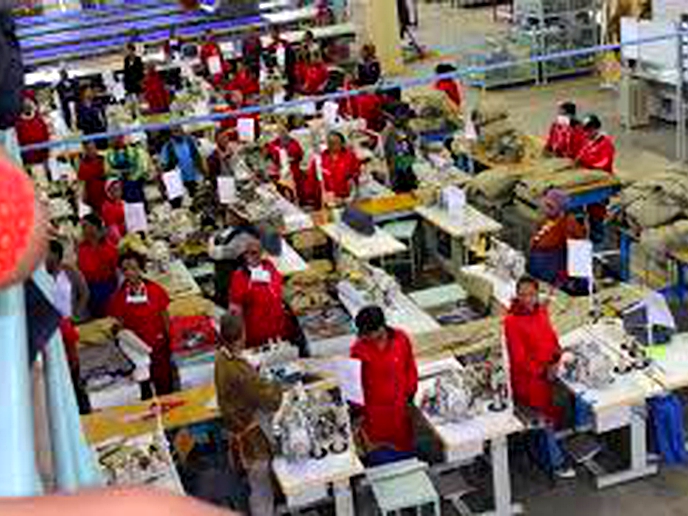Molapo Shakhane, the deputy chairperson of Maseru Agro Piggery, an association comprising 25 members with the sole purpose of raising pigs for sale, says there is a lucrative market in piggery. Maseru Agro Piggery is based in Maseru and Shakhane says it is all about patience, advising people not to rush to make profits because the fortunes could be reaped after a much longer time.
business
April 11, 2019
STAFF REPORTER
5 min read
Secret behind thriving piggery project

There are six men and 19 women in the association that has made a breakthrough in Lesotho’s legendarily tough climate for small businesses. Shakhane says in April last year, they pooled together their financial resources to venture into piggery project after noticing that there was a reliable market for pork in Lesotho and they decided to grab it.
From the humble beginnings, Shakhane says they raised capital through contributions of M100.00 per member and they kept growing the
money but they did not have land to get their project up and running. Eventually they found a place in Ha Tsolo that they rented to run their project.
The place already had structures (pig-sties) to enable them implement their project without any hurdles and they started with five pigs;
one male and four females.Their business spirit was high and their target was to sell to butcheries in Maseru but their market also rolled out to individuals. He says the free training that they got from Basotho Enterprises Development Corporation (BEDCO) in production and business management made it easy for them to run their project with a high degree of confidence and self-assurance.
Shakhane says when the number of their pigs increased, their challenge of space also arose because they were failing to accommodate them all of them. There were 30 members when they started but others dropped out along the way for various reasons. He insists that there is a good market for piggery and the butcheries and individuals have been their reliable buyers so besides pigs collectively owned by their joint project, individual members also separately each have other pigs. He says their project sells piglets and meat.
“There is money in this project and we are able to fight poverty in our families,” he says. He says they made a market research and were able to identify what would be best for their products. “We learnt that buyers do not like old pigs. The pig should at least be six to eight months but preferably six months,” Shakhane advises. He says what keeps their business afloat is that they use cash and carry system where they do not allow buyers to buy on credit insisting credit is what has made many small businesses to fail.
However, he said some butcheries insist that they would only pay after seven days of delivery. Now the growing association was able to buy its own site at Mahlabatheng on the outskirts of Maseru, where they have a big dream that they want to turn into reality. “We want to have a big plant there which could also work as a training institute to hone pig farmers’ skills,” Shakhane says. The farmers now have more than 100 pigs that are ready for sale.
Enjoy our daily newsletter from today
Access exclusive newsletters, along with previews of new media releases.
Shakhane says the piggery project has a huge market and now they have built a strong clientele with butcheries in Maseru. He insists that those who want to venture into this project should not expect to miraculously make strides overnight. “They have to work hard and hear what the market wants out there,” Shakhane says.
He says some people think piggery is the fast-cash project and when that does not work in their favour, they simply crash out. Shakhane advises farmers to realise that buyers are not the same as some will demand a lot from them. In order to have quality meat, farmers have to ensure that their pigs are vaccinated against diseases and cleanliness should also be one of the primary issues to be taken into consideration, while feeding pigs properly was also crucial, he advises. He says they take their pigs to a reputable slaughterhouse
when they need to supply the market.
They have a network with other piggery associations in the country where they source out pigs for their client if they have higher demand
than they are able to satisfy. He said they do this to keep a relationship of trust between the buyer and the seller.
Shakhane discloses he has travelled to some South African big piggery projects to find out how they carry out their enterprises to satisfy the market. Project members are divided into two groups within the association where one group produces piglets while another sells pork under one name of Maseru Agro Piggery. He says they have a WhatsApp group as the association that enables them to discuss their issues timely and effectively.
“It works perfectly well for us,” Shakhane says. In terms of financial management, he says they have opened bank accounts that enable them control their cash flow since proper bookkeeping is important in any business. Having their own land, he notes, is the biggest achievement that the association has ever accomplished. What is more fascinating is that the project has a greater number of women who do not want to financially depend on their husbands.
These women are waging war against poverty and are able to put their children through education and are generating enough for living,
buying clothes, raising their children and sending them to school who continue looking for ways to become financially independent. This, he argues, is a positive step towards women empowerment through small scale money- generating projects and creating job opportunities for the unemployed women. At the back of their minds, Shakhane maintains that they know that unless they step up their game, their project would be doomed.
That fear of failure keeps them wide awake at night. They plan to pump in more money into the business to achieve their dream. He says if they could secure sponsorship to back them up with what they already have, they are likely to go places as piggery has the potential to transform Lesotho’s ailing economy. In August last year the Lesotho National Development Corporation (LNDC) sealed a piggery deal with a South Africa-based company worth M250 million. The project is expected to contribute to the development of production and supply chains and create over 1 000 jobs in the agricultural sector.
Tailored for you






